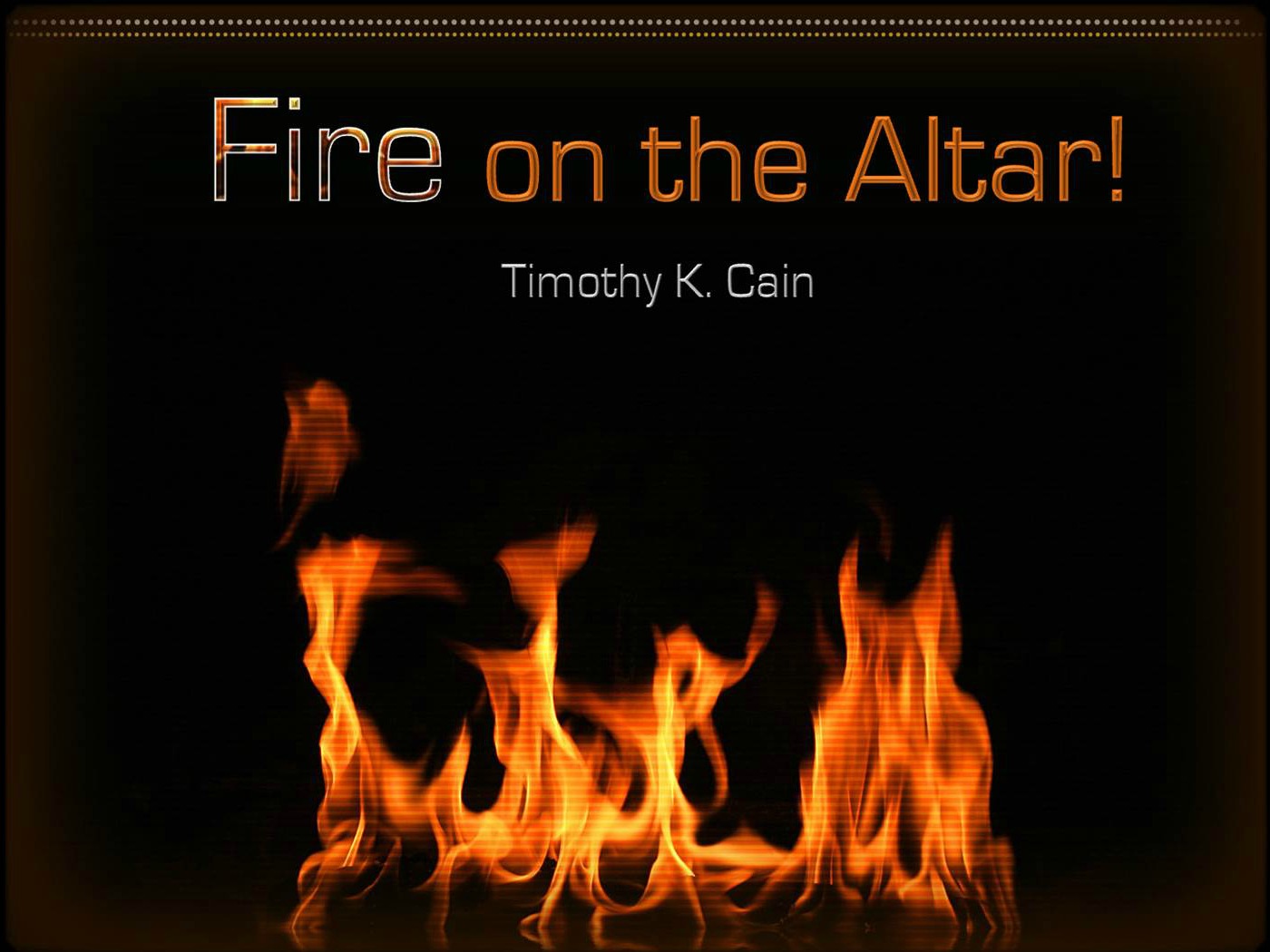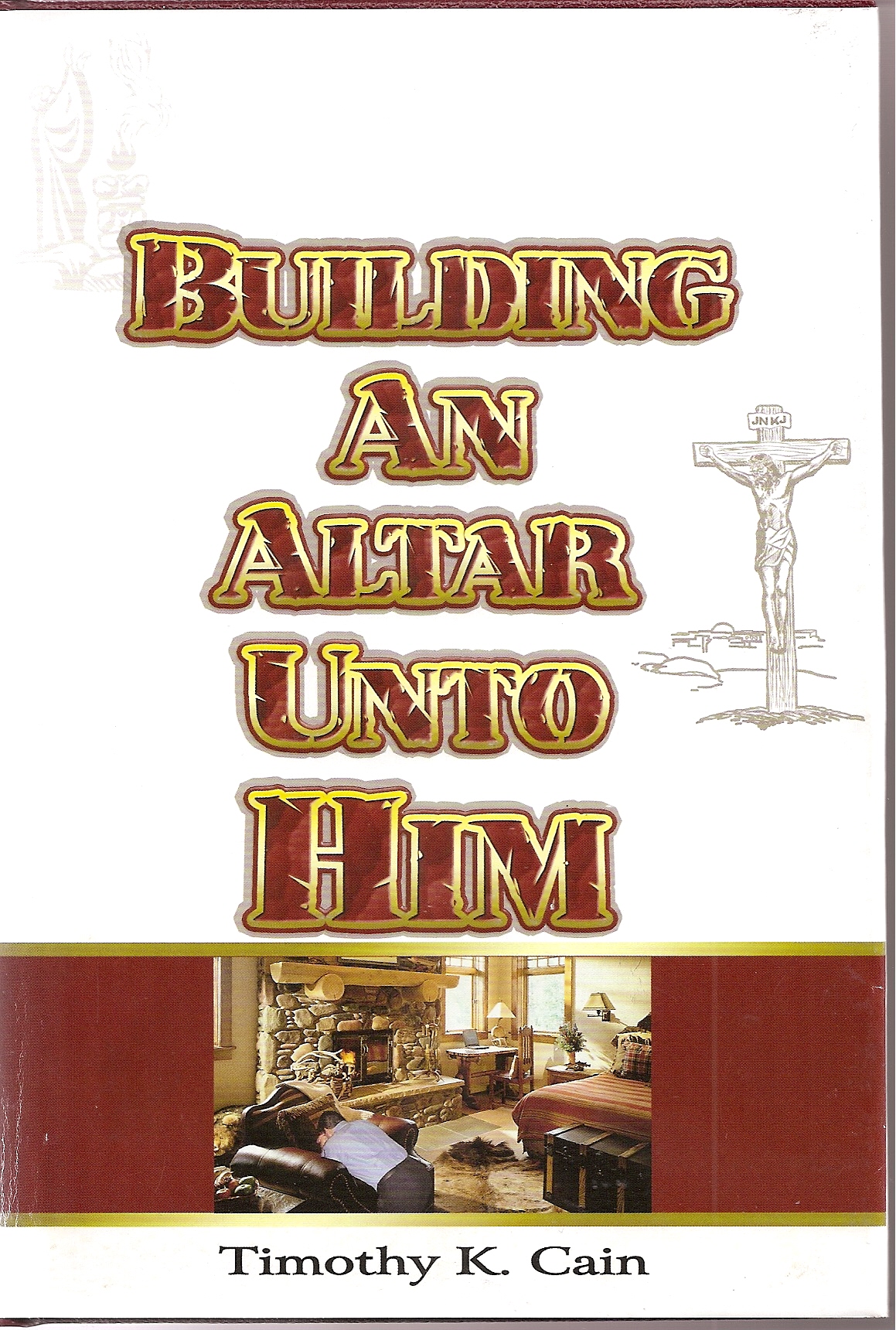A flame from the head of one match could have been the igniting source of fire which resulted in the destruction of millions of acres of land. Yet a single match is all that is necessary to maintain life. Wilderness survival trainers stress the importance of keeping your matches, or other source of fire, dry at all costs. Persons lost in wilderness around the world have been found and saved by the flame of one match.

By Timothy K Cain
To View the Entire Article, Click Here
To Download the Entire Article Directly to Your Computer, Click Here
To View the Outline, Click Here
To View the PowerPoint, Click Here
Only God can send the fire to consume the sacrifice on the altar! It is up to us to provide the necessary fuel to maintain the fire. This is true both physically and spiritually. Fire on the altar is needed to purge, destroy, cleanse, sanctify, purify, and make sacred that which is unholy. Without fire, the altar experience is incomplete. Fire has an empowering force of its own, which comes from its source. Take away the source, and the fire dies. Failure to stoke the fire to allow it to breathe causes the fire to die. Without fuel, the fire dies. What good is the fire without an altar and/or a sacrifice?
Fire is the third required element of a complete altar experience. As with the altar and the sacrifice, preparation must be done before the fire can come and do its work. Once the fire has been sent by God, we must do some things to maintain the fire. For the purposes of this work, we will look at the physical aspects and the spiritual aspects of fire from biblical texts. As with the other required elements of an altar experience, we will look at fire in the context of the OT, NT, and its manifestation today. As we will see, the requirement for fire throughout the Bible has not changed, but its form has. Furthermore, its empowering force has not diminished and is still essential for us to possess today!
Let’s briefly look at the original Hebrew and Greek words that have been translated to the English word fire. With a few exceptions, the primary Hebrew word used in the OT for fire is the term ‘esh. This term ‘esh in the Hebrew means “fire(literally or figuratively): burning, fiery, fire, flame, flaming, hot.” From this definition above, we see that the term ‘esh is used in a broad variety of contexts in the OT. The first use of the word ‘esh is found in Genesis 19:24, which is referring to the destruction of Sodom and Gomorrah. In the NT, the primary word used from the Greek for fire is pur. The word pur is used in the NT in all but seven occasions (Mark 14:54; Luke 22:56; Acts 28:2, 3; James 3:6; II Peter 3:12; Revelation 9:17). Pur simply means “fire (literally or figuratively), or fiery.” The first use of the word pur in the NT is found in Matthew 3:10, in reference to the destruction of trees which are cut down if they do not bear fruit. Note that the first use of the word fire in the OT and NT is in the context of destruction due to disobedience. It is also important to note that the Hebrew term ‘esh of the OT and the Greek word pur of the NT are both used literally and figuratively to describe fire.
The natural elements of fire have been with us since God created the heavens and the earth. Like the altar and the sacrifice, fire is a part of what God has given to us. Whether by lightning from the sky, molten lava from the earth’s core, fire from the heat of friction or combustion, or the more modern engineered forms of controlled fire, they are all a part of God’s creation. It is these forms of fire that we think of in the natural realm. Most, if not all, of these forms have their place in nature and the development of modern-day mankind. Much of our current knowledge about the physical form of fire is just that, knowledge. Because the elements that are necessary to make up natural fire exists all around us and because uncontrollable elements of nature can ignite fire at any moment without warning, we are reduced only to control fire when possible. Billions of dollars are spent annually by nations around the world in an attempt to control the destructive force of fire. This may explain why we humans tend to think of fire as simple a destructive force. One of the first things parents still teach their children is, “Don’t play with matches.
To View the Entire Article, Click Here
To Download the Entire Article Directly to Your Computer, Click Here
To View the Outline, Click Here



